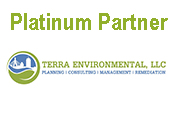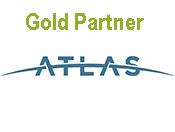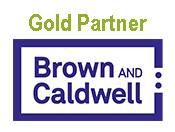Getting Entangled in Local Rules - A Member SurveyBy: Jim Decoulos, LSP, Decoulos and Company; Jeanine Grachuk, Principal, Beveridge & Diamond, and Crista J. Trapp, Senior Scientist, The Vertex Companies – all from the LSPA’s Loss Prevention Committee Among the issues that the LSPA’s Loss Prevention Committee (LPC) has identified as creating potential exposures for practicing LSPs are the varied and sometimes unexpected local bylaws and other requirements implemented by the 351 cities and towns in Massachusetts. On June 5, 2015, the LPC surveyed the LSPA membership seeking to better understand what types of local requirements have been issues for LSPs and which warrant further study. The survey also addressed Nature and Extent determinations and the Conceptual Site Model, which will be discussed in a future article. This article summarizes the local requirements portion of the survey results with a brief discussion of the types of local requirements that may affect LSP work. This portion of the survey asked whether the respondent had ever worked at a disposal site that had been affected by local requirements and, if so, the nature of the impacts, the types of requirements, and the names of municipalities in which that had occurred. Selected highlights from the survey results are as follows:
Members identified many different types of local regulation as impacting work at disposal sites: aquifer protection districts, Planning Board rules, Board of Health rules, and permit requirements. Our survey demonstrates that it is prudent for LSPs and their response action teams to conduct an inquiry regarding local jurisdictional authorities for each of the projects they perform. In our LPC discussions, it became clear that few of us understand the differences between a bylaw, an ordinance, or a local regulation. While all of these are binding, understanding the terminology and the authority for a rule can be useful. Towns typically have zoning bylaws and non-zoning bylaws that may be relevant to work at disposal sites. Cities do not use the term “bylaw”; instead, they have zoning ordinances and non-zoning ordinances. In some cases, rules or regulations can be adopted by town or city boards. General (non-zoning) bylaws or ordinances can pertain to any subject relevant to local matters. Municipalities have broad authority to adopt local laws under Article 89 of the Massachusetts Constitution, commonly known as the Home Rule Amendment. However, the bylaws or ordinances cannot be in conflict with state laws. Some municipalities will include in the general bylaws or ordinances provisions about excavation, tree removal, and monitoring wells. Some cities or towns have created aquifer, groundwater, floodplain or similar protection zones. Practitioners will find that the types of bylaws or ordinances vary significantly between municipalities. Zoning bylaws or ordinances govern activities on land, including structures (e.g., setbacks from streets) and uses (e.g., residential or business use). Zoning bylaws or ordinances may require permits for certain remedial activities. Some permits are issued by a planning board or building inspector, while others are issued by a Zoning Board of Appeals. Zoning requirements are typically enforced by the building inspector, who commonly serves as the zoning enforcement officer. Many towns and cities have established conservation commissions under the state Wetlands Protection Act. The authority of these commissions is not limited to the state act or regulations. Under Home Rule, a town or city may adopt a non-zoning bylaw or ordinance establishing stricter requirements. More than half of all conservation commissions have issued regulations under the provisions of local bylaws or ordinances. Boards of Health have broad statutory authority in Massachusetts under General Laws, Chapter 111 to adopt reasonable health regulations. Typically, Boards of Health adopt regulations related to disease prevention, food protection, garbage, nuisance, and septic systems. However, several have also adopted requirements relating to junkyards, monitoring wells, and underground storage tanks. Recently, several boards have added local rules relating to contaminated soil removal and management. Each of the 351 municipalities in Massachusetts has the ability to exercise its authority over local matters in a different way. As such, any town or city could have a broad array of requirements in its zoning bylaws, non-zoning bylaws, and regulations. LSPs should evaluate the nature and potential schedule impacts of municipal authority for all aspects of their response action activities. The LPC plans to use the survey results to identify types of requirements for further research and expects to publish a series of articles over the course of the year with more detail on different types of requirements that can present potential pitfalls for LSPs.
|



































